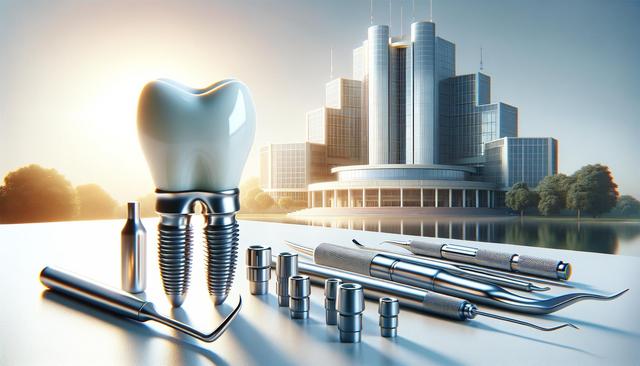The Need for Seamless Dental Implants in Senior Care
As people age, dental health often becomes a growing concern. Tooth loss due to decay, gum disease, or injury is common in older adults, and seamless dental implants have become a practical solution to restore function and aesthetics. These implants are designed to integrate naturally into the jawbone, offering a stable and long-lasting alternative to dentures. For seniors, the benefits go beyond appearance—they can enjoy improved nutrition, clearer speech, and better overall health outcomes. Seamless dental implants are particularly attractive to older adults because they eliminate many of the issues associated with removable dentures, such as slippage, discomfort, and maintenance complications.
Choosing dental implants also reduces bone loss in the jaw, which is a natural consequence of missing teeth. This preservation of bone structure contributes to a more youthful facial appearance and can prevent further oral health complications. However, the decision to move forward with implants requires careful evaluation of a senior’s overall health, including bone density, gum condition, and any chronic conditions that might affect healing or integration of the implant.
Breaking Down the Costs of Seamless Implants
The total cost of seamless dental implants for seniors can vary significantly depending on several factors. On average, a single implant can range from $3,000 to $6,000. This price typically includes the implant fixture, abutment, and crown. However, additional procedures such as bone grafting or sinus lifts—often necessary for seniors—can raise costs substantially.
Several elements influence the final price, including:
- Geographic location of the treatment facility
- Experience and specialization of the dental implantologist
- Type of implant materials used
- Pre-treatment and post-procedure care requirements
It’s also important to note that dental insurance often provides limited support for implants, classifying them as cosmetic. Many seniors turn to supplemental dental plans or health savings accounts (HSAs) to offset the out-of-pocket expenses. Some hospitals and clinics also offer payment plans or financing options tailored to older adults on fixed incomes, making the treatment more accessible.
What to Look for in a Senior-Friendly Dental Facility
When seeking seamless dental implants, choosing the right clinic or hospital is key to ensuring a safe and successful outcome. Facilities that specialize in geriatric dentistry are typically more attuned to the specific needs of older patients, offering tailored support and more comfortable environments. A senior-friendly dental facility should prioritize accessibility, clear communication, and post-operative care plans suited to older adults.
Some features to consider when evaluating a facility include:
- Availability of sedation or anxiety-reducing options
- Accessible entrances, exam rooms, and restrooms
- Staff trained in geriatric care and dental implant procedures
- On-site diagnostic tools like 3D imaging for precise implant placement
- Collaborative care with other health professionals if the patient has complex medical conditions
It’s also valuable to read reviews, ask for patient testimonials, and consult with your primary care provider or geriatric dentist for recommendations. Facilities known for their patient-centered approach and multidisciplinary care often deliver more satisfactory outcomes for seniors undergoing dental implant procedures.
Highly Regarded Hospitals for Senior Dental Implants
Several hospitals and dental clinics across the country have earned recognition for their excellence in dental implantology, especially for older adults. These institutions often combine advanced technology with a patient-first philosophy, ensuring both safety and comfort throughout the procedure. While brand names cannot be mentioned, many teaching hospitals affiliated with dental schools are among the most trusted places for senior dental care, as they emphasize continuous research and use of modern techniques.
Hospitals with dedicated dental and oral surgery departments often include services such as:
- Comprehensive implant consultations and planning
- Advanced imaging technologies for accurate diagnostics
- Custom treatment plans with options for minimally invasive procedures
- Post-operative monitoring and support for recovery
- In-house specialists in prosthodontics and oral surgery
These institutions often serve as referral centers for complex cases, making them a wise choice for seniors who may require additional medical oversight. Prospective patients should inquire about experience with geriatric cases specifically and whether the facility tailors its approach for older adults with underlying health conditions.
Planning Ahead: Financial and Health Considerations
For seniors considering seamless dental implants, planning ahead is a critical step. Beyond the surgical procedure itself, the journey involves several stages—evaluation, preparation, surgery, healing, and maintenance. Understanding these steps helps set realistic expectations and can make the financial investment more manageable. Seniors and their caregivers should review all associated costs, including potential follow-up visits, cleanings, and adjustments.
Here are a few planning tips:
- Schedule a comprehensive dental exam and bone density test
- Review current health insurance and supplemental dental coverage
- Ask about package pricing or senior discounts
- Create a timeline that aligns with overall health and travel needs
- Discuss anesthesia options and recovery support with the dental team
Involving family members or caregivers in the planning process can also help ensure that all aspects of care are considered. From transportation to dietary adjustments during recovery, support systems play a major role in a smooth implant experience. Clinics that offer patient education and follow-up services often prove to be more beneficial for seniors navigating this journey.
Conclusion: A Worthwhile Investment in Senior Wellbeing
Seamless dental implants can significantly improve quality of life for seniors by offering enhanced functionality and aesthetics. While the costs can be substantial, careful planning and choosing the right facility can make the process more accessible and successful. By focusing on clinics that cater to older adults and maintaining open communication with healthcare providers, seniors can make informed decisions that support long-term oral and overall health. For those ready to explore this option, a combination of medical guidance, financial preparation, and trusted care partners will set the stage for a confident and comfortable outcome.


